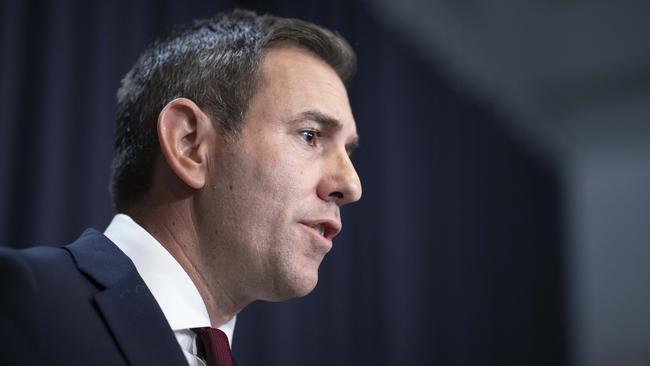Pay super with wages, not every quarter, industry says
In its budget submission, the influential industry superannuation lobby says changes are needed to head off almost $5bn in annual underpayments.

The influential industry superannuation sector is calling on the Albanese government to mandate super be paid at the same time as wages in a bid to head off almost $5bn in annual underpayments.
In a submission to Treasury’s budget process, Industry Superannuation Australia says it estimates more than two million workers are being short changed on billions of dollars of superannuation entitlements each year.
The association – which includes the largest pension funds including AustralianSuper, Cbus and Hostplus – argues that the current system, where super only has to be paid quarterly, makes it harder for employees to track their entitlements and easier for “dodgy bosses to rip off workers”.
“We are calling on the government to mandate that super is paid with wages,” Industry Super chief executive Bernie Dean said.
The submission says data from the Australian Taxation Office shows Australians have been underpaid a total of $33bn in superannuation payments over the seven years to 2019-2020 – an annual average of $4.7bn a year.
Those most impacted by underpayment of superannuation are younger workers on lower incomes, people working in hospitality, retail and blue collar trades, the submission continues.
Mr Dean said the federal budget, to be handed down by Jim Chalmers on October 25, provided an opportunity for the government to address the problem by mandating that superannuation be paid at the same time as wages. He said regular payment of super would generate more tax revenue for the government.
The change has been recommended by two Senate inquiries and is supported by well as consumer groups, unions and employers, Mr Dean said.
While the association’s submission notes compulsory superannuation has worked well, it argues the government needs to take more action to “resolve systematic shortcomings which drag on members’ balances”.
It also wants to see the ATO step up its compliance activities to monitor employers who are underpaying superannuation.
Mr Dean said the current situation – with continued underpayment of billions of dollars per annum – meant a “less secure future for them and their families.”
“Aligning the payment of super and wages wont just deliver workers more of what they are owed, it will put all employers on a level playing field and boost government revenue,” he said.
The association is also arguing that the government should use the budget to mandate super with the commonwealth paid parental leave payments and increase the low income super tax offset.
The government is relying on the industry super sector to help it deliver on some of its ambitious promises on affordable housing, the renewable energy transition and in the aged care sector.
The Treasurer last month said the sector had a role in “investing in our national priorities”, while Anthony Albanese told the government’s Jobs and Skills Summit he had “constructive discussions, including with the superannuation funds” about investing in its plans for a national housing infrastructure facility.
But the sector has several requests of the government, its submission notes, including for more action to remove inequities in the system which see women end their working careers with a third less in superannuation as men. “We acknowledge the government has indicated that it is supportive of paying super on commonwealth paid parental leave when circumstances permit,” submission reads. “We encourage you to prioritise this vital step needed to address this embedded system inequity.”
The association is also arguing that the government should improve its Your Future Your Super performance test regime to take into account 10 years of historical data rather than seven, as the test currently mandates. It also argues that workers should not be “stapled” to superannuation funds which fail the performance test.
The ISA is also repeating its calls for the government to pass legislation to define the purpose of superannuation as being the provision of retirement income and to ban any future moves to see superannuation as a source of funds for other purposes.



